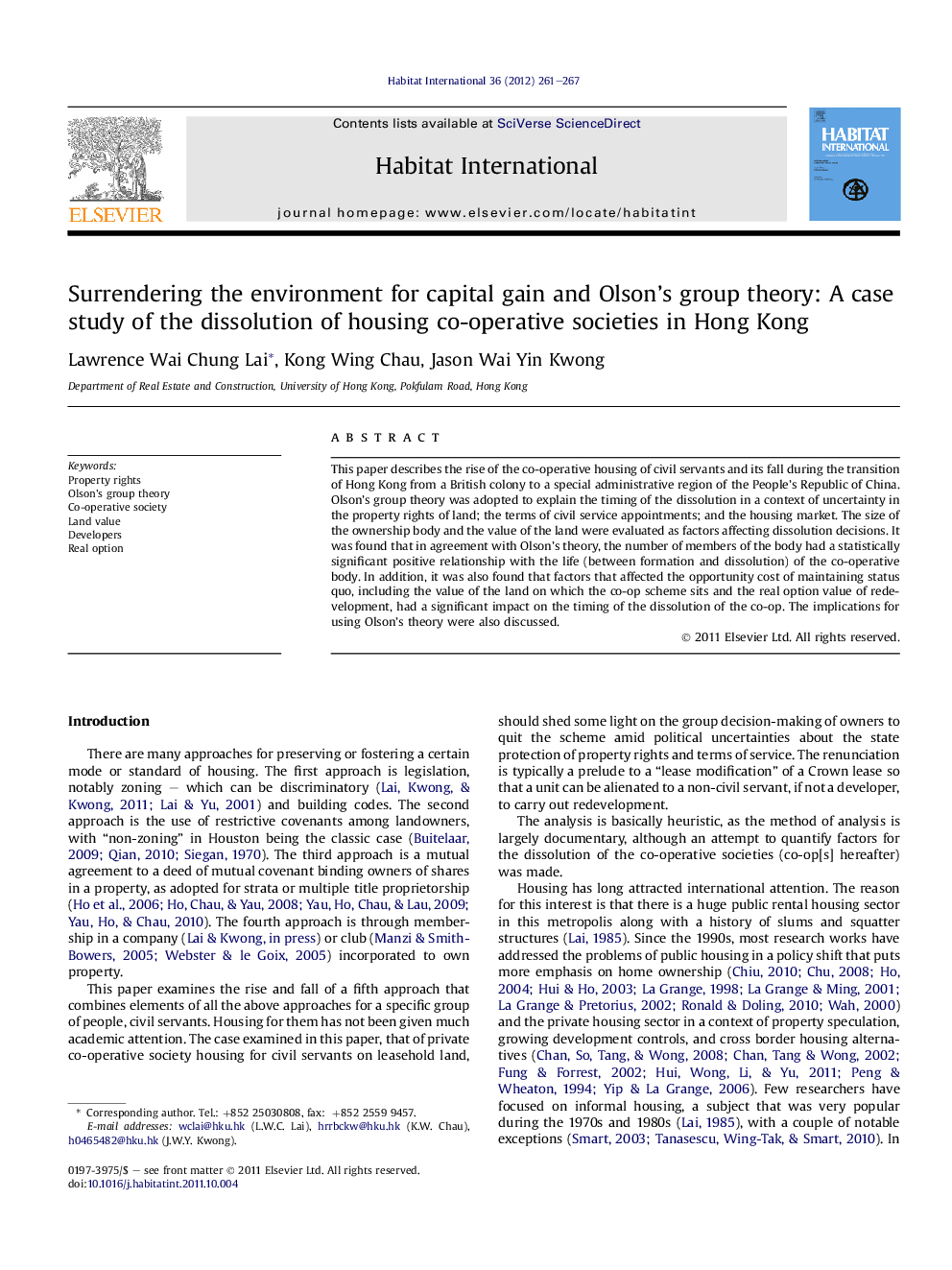| Article ID | Journal | Published Year | Pages | File Type |
|---|---|---|---|---|
| 1048046 | Habitat International | 2012 | 7 Pages |
This paper describes the rise of the co-operative housing of civil servants and its fall during the transition of Hong Kong from a British colony to a special administrative region of the People’s Republic of China. Olson’s group theory was adopted to explain the timing of the dissolution in a context of uncertainty in the property rights of land; the terms of civil service appointments; and the housing market. The size of the ownership body and the value of the land were evaluated as factors affecting dissolution decisions. It was found that in agreement with Olson’s theory, the number of members of the body had a statistically significant positive relationship with the life (between formation and dissolution) of the co-operative body. In addition, it was also found that factors that affected the opportunity cost of maintaining status quo, including the value of the land on which the co-op scheme sits and the real option value of redevelopment, had a significant impact on the timing of the dissolution of the co-op. The implications for using Olson’s theory were also discussed.
► The paper applies Mancur Olson's group theory. ► It analyzes the dissolution of co-operative housing bodies in Hong Kong. ► The size of the group was significant. ► However, real option value had a greater impact.
